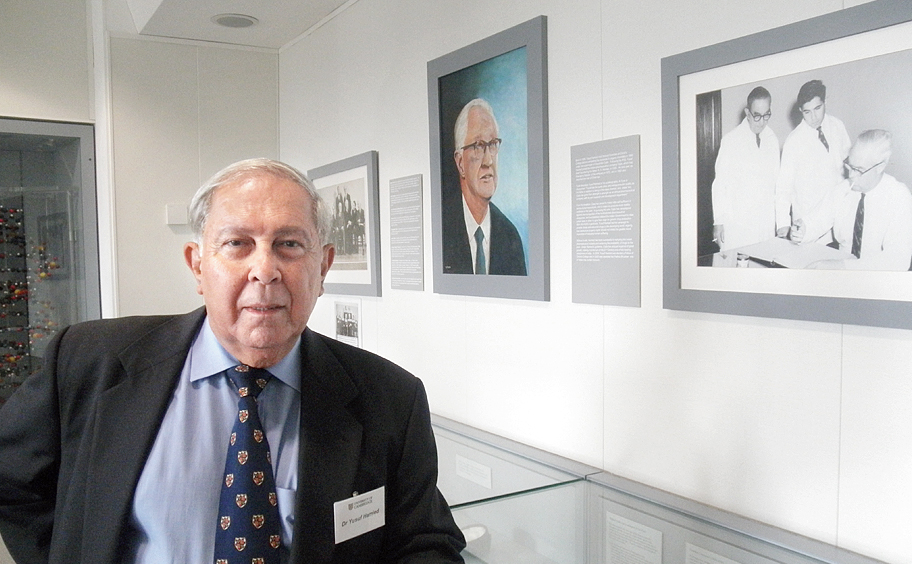The 1702 chair in chemistry at Cambridge is being renamed after Yusuf Hamied, head of the Indian pharmaceutical firm Cipla, the university has announced.
“The chair will now be known as the Yusuf Hamied 1702 Chair of Chemistry,” a statement said, describing Hamied as “a distinguished alumnus whose generous new donation will support it in future”.
It added that as chairman of Cipla, a company Hamied’s father founded in 1935 at the request of Mahatma Gandhi, “Dr Hamied worked to provide low-cost generic anti-retroviral drugs to people with HIV and AIDS in developing countries, reducing the cost of the drugs to under a dollar a day”.
Hamied’s intervention in Africa is estimated to have saved 10-15 million lives.
His philosophy is that medicine “always has to be a business with a humanitarian aspect”.
The immediate past holder of the chair, John Pyle, told The Telegraph from Ecuador where he was attending a conference that the chair is so called because it was founded in 1702, making it the longest continuously held chemistry chair in the UK and probably the world.
“I’m delighted with the name change,” Pyle said. “Yusuf has done so much for the department and he’s a wonderful person who has done great things. His mentor, Lord Alexander Todd, held the chair.”
It was Todd who admitted Hamied as an undergraduate at Christ’s College in 1954 but without the necessary “A” levels to read the natural sciences. The gamble paid off. Hamied took a First and stayed on to complete his PhD in chemistry by 1960.
Todd, who became Master of Christ’s, won the Nobel Prize for Chemistry in 1957 and was one of many distinguished holders of the 1702 chemistry chair.
Since 1991, it has been called the BP (1702) Chair of Chemistry because of an endowment by BP. But the name change is now “in perpetuity”.
Hamied said: “Cambridge educated me, taught me how to live, and how to contribute to the world.
“I first met Professor Todd in India in 1953. When asked if there were any special qualifications required for admission to Cambridge University, he replied, ‘We have no rules, we admit anyone whom we consider suitable to be a student.’ My father then asked, ‘Can I send my son to Cambridge?’ and the immediate reply was, ‘He can join in October, 1954.’ Things have changed a little since then.”
Hamied, 82, spoke of his “close bond” with Cambridge and especially the chemistry department: “In recent years we have set up the Todd-Hamied Seminar Room, the Todd-Hamied Laboratory and the Hamied Laboratory in the department. Now I am delighted that I am leaving behind a legacy for the future.”
He told this newspaper: “I am not taking my money with me, so this is a good thing.”
A current professor in the department, Jeremy Sanders, agreed that Todd was “Yusuf’s hero”.
He said: “Subsequent holders have included Sir Alan Battersby, who elucidated the complex pathway by which ‘the pigments of life’ — chlorophyll and haemoglobin — are synthesised in nature, and Steve Ley, a great pioneer of new methods for the synthesis of organic molecules.”










